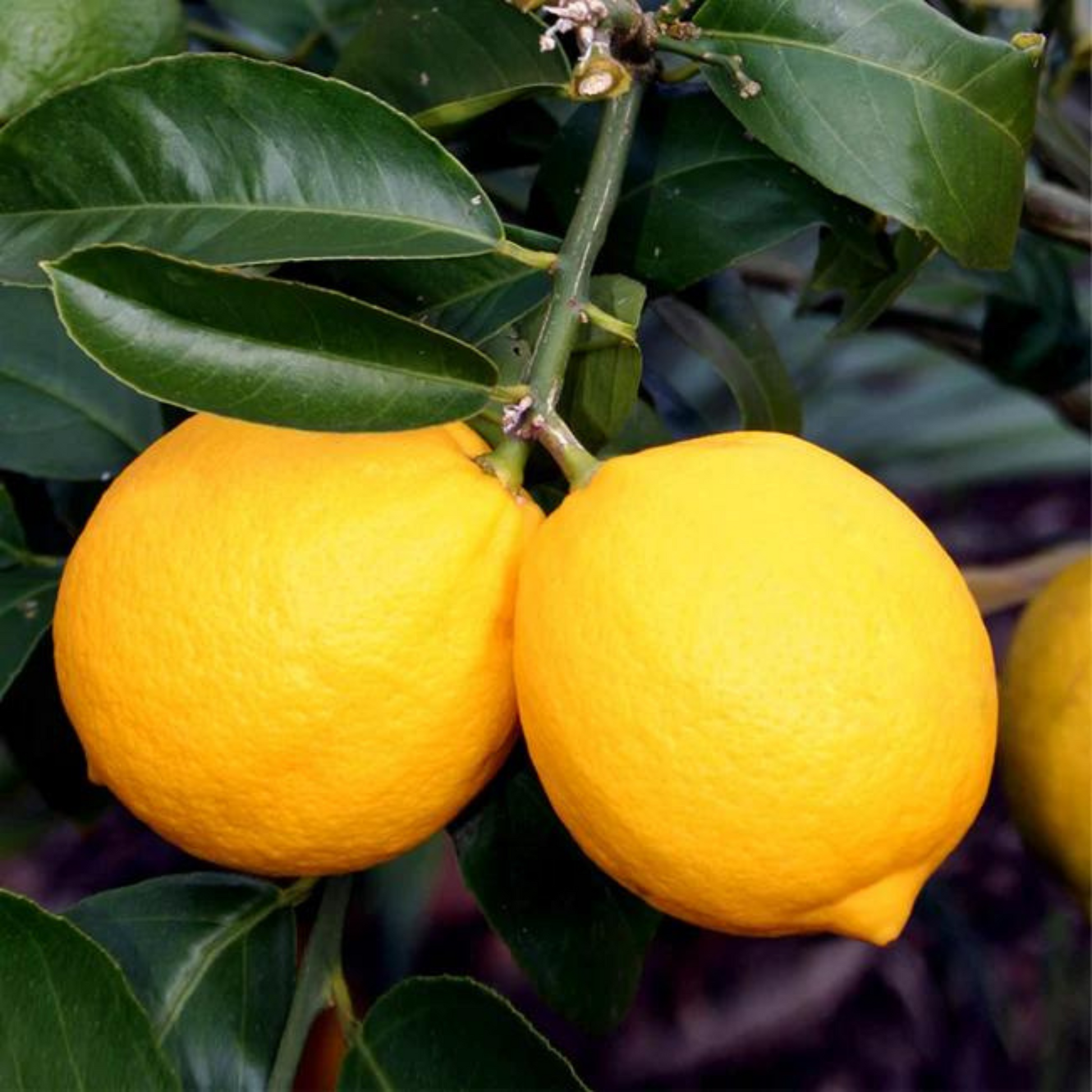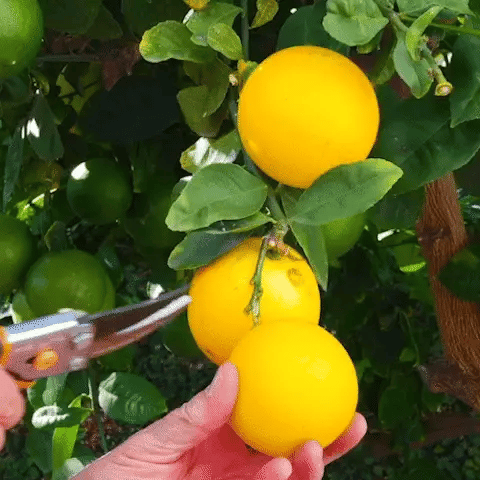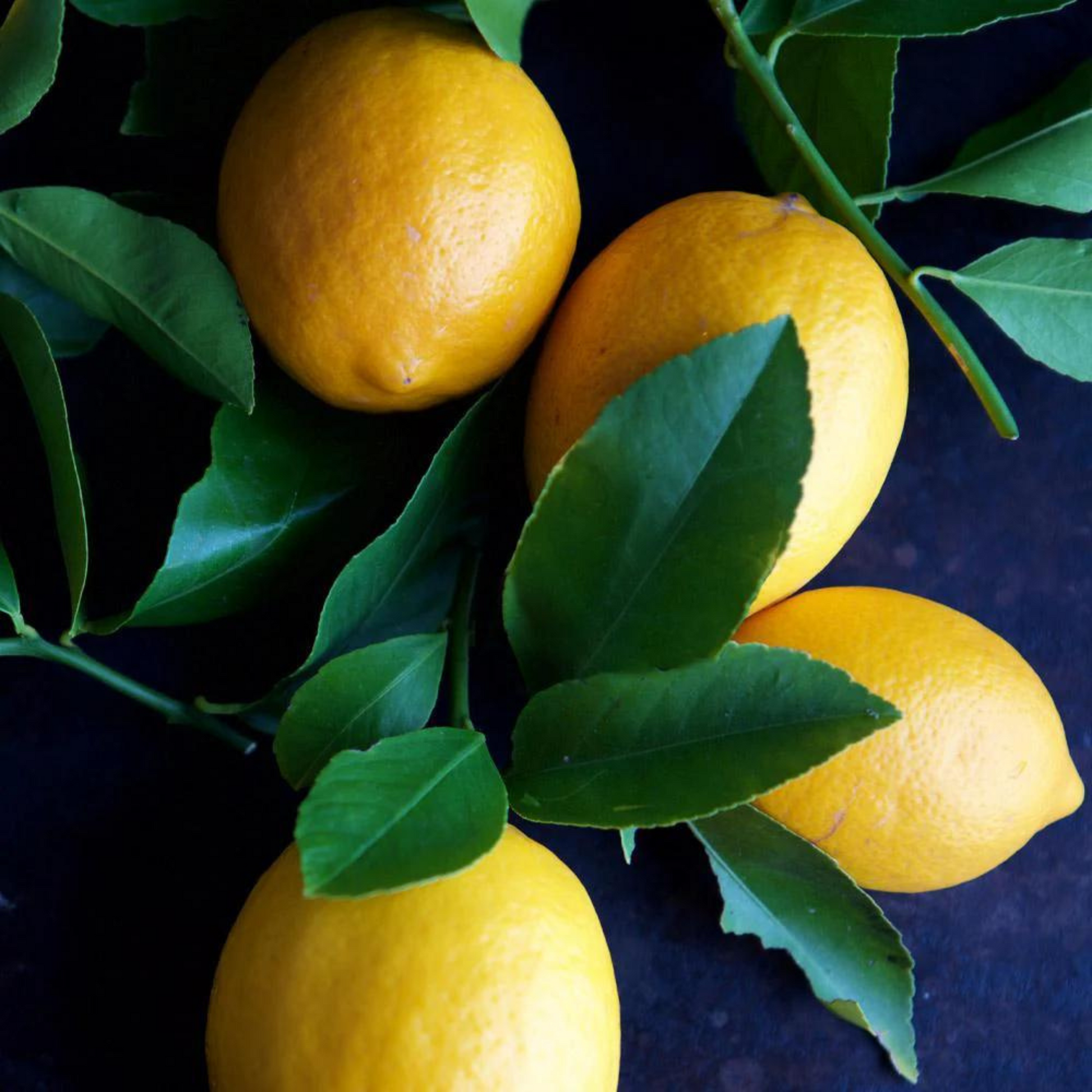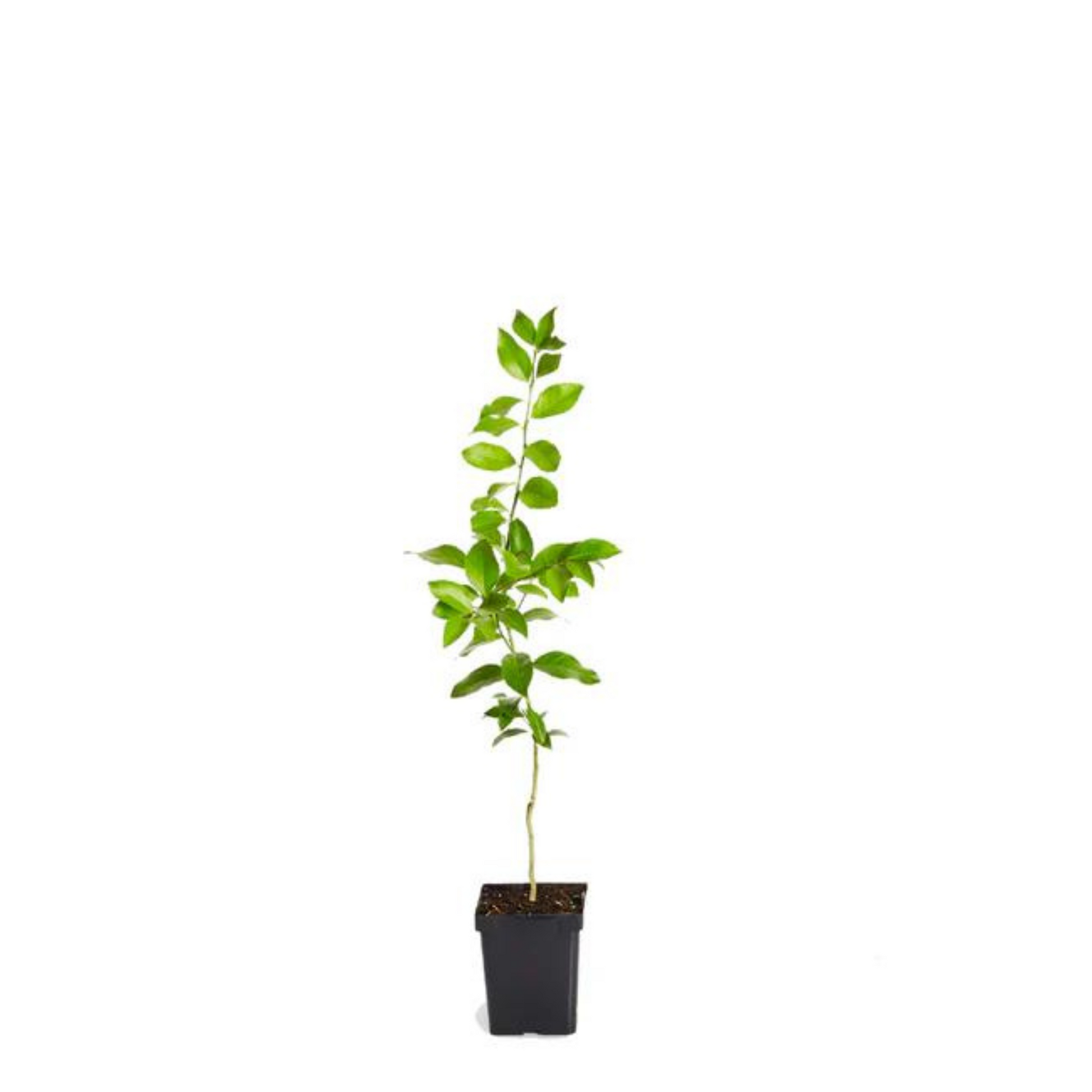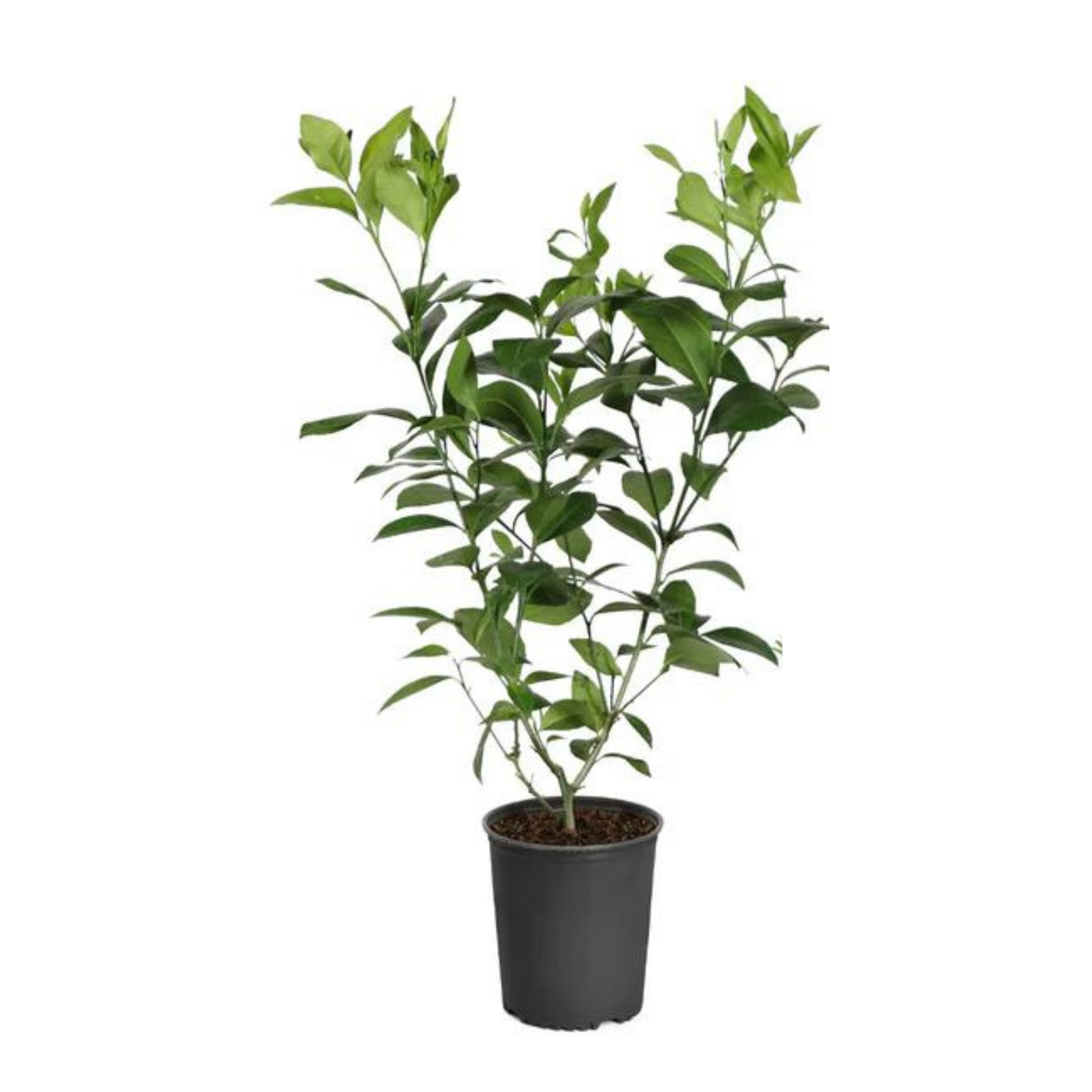My Store
Meyer Lemon Tree (Citrus × meyeri 'Improved')
Meyer Lemon Tree (Citrus × meyeri 'Improved')
Couldn't load pickup availability
Citrus trees, with their golden fruits, scented flowers and rich, evergreen glossy green leaves, are a symbol of warm, southern places. If you live in such a place then you can grow citrus outdoors, but many develop into large trees, so if you have a smaller garden you need to grow a citrus that remains small. The Meyer Lemon is the ideal choice for this. It reaches only 10 feet and can be kept pruned to stay even smaller, so it will fit into any garden.
Meyer Lemon you can grow your own beautiful lemons, full of healthy vitamins and exciting flavor, in a pot which can be brought inside or onto a sheltered porch in winter. So in the garden or in a pot, the Meyer Lemon is a wonderful addition to your garden and a beautiful sight to see whether full of richly-perfumed flowers or laden with golden-yellow fruits.
The Meyer Lemon grows in almost all kinds of soil as long as they are not wet for long periods. Established trees will tolerate hot, dry weather, but should be watered during extended dry periods. They are subject to some pests, but these rarely develop into serious problems, as the Meyer Lemon is tougher than many other kinds of citrus.
Origins of the Meyer Lemon
Frank Meyer was an official ‘agricultural plant explorer’, for the US Department of Agriculture, who spent from 1905 to 1918 traveling in China and collecting new plants to introduce into America. In all he collected over 2,000 plants, but perhaps his most famous introduction in the Meyer Lemon (Citrus x meyeri). This plant was widely grown in China as an ornamental pot-plant and is thought to be a cross between a lemon and a mandarin orange. It has a distinct flavor, being sweeter and less acidic than common lemons and with a deep yellow flesh. The fruit is more rounded and yellower than a normal lemon, with a thin skin and so a greater volume of juice.
Growing Meyer Lemon Trees
The Meyer Lemon grows into a shrub or small tree, between 6 and 10 feet tall and 4 to 6 feet wide, so it is an ideal specimen to grow in a large pot to decorate a terrace, or in the ground in a smaller garden or yard. It can be pruned into a tree form, and the height and spread are easily controlled by pruning. The leaves are oval in shape, evergreen, glossy and dark green in color.
Flowering happens in spring, with beautiful, white, richly-scented flowers that will fill your porch or garden with a sweet perfume. The fruits develop slowly over summer and are ready to pick during the winter months, from November to March, when the summery lemon flavor can be used in drinks, cakes, cookies or desserts.
Meyer Lemon is such a special plant that only the exact plant will do. So it must be produced directly from trees known to be the right variety. Our trees are grown the correct way, from stem cuttings of these special trees. That way every tree is identical to the original. However these take longer to produce, so avoid cheaper trees that will only be a disappointment.
Due to disease problems, the original Meyer Lemon has been replaced with a more disease-resistant ‘Improved Meyer Lemon’, which is the form we will send you. That way you will have no need to be concerned about diseases with your tree.
Planting Your Meyer Lemon Tree
Your Meyer Lemon is easy to plant. Just dig a hole two or three times wider than the pot and a little deeper. Place your plants in the hole, replace most of the soil and firm it well down. Fill the hole with water and when it has drained away replace the rest of the soil. In pots, choose a large pot and use a standard potting soil.
The Meyer Lemon does best in full sun, but a little shade for a few hours is usually acceptable. The soil should be allowed to get almost completely dry between watering and in the ground it will tolerate some dryness. Make sure plants in pots do not become completely dry.
Use a citrus fertilizer in spring and summer. Some forms are slow-release and only need one application a season. These fertilizers are designed to encourage fruit production and keep your Meyer Lemon from growing too large. Prune away any shoots from the bottom if you are growing as a tree, and trim back long branches, but detailed pruning is not necessary
Meyer Lemons are different from the small, tart and acidic lemons at your grocery store – the fruit is literally a cross between traditional sour lemons and sweet oranges. That means you get both sweet and savory flavors from each squeeze of this delicious fruit!
- Can fruit within the first three years
- It thrives indoors or outdoors
- Remarkable cold and heat tolerance
As you know, the fruit available at your grocery store is not chosen for flavor but rather shelf life – that is why the lemons available to you are small with very thick skin. Meyer Lemons are not available in grocery stores because the fruit skin is so wonderfully thin that it would bruise while riding in a crate – however, the thin skin is perfect for home chefs that want tantalizingly fresh fruit right off the branch! The thin skin allows the citrus juices to develop fully, making it the perfect raw fruit for juices, desserts, and flavoring.
Grow Lemons Anywhere in the Country
Bring the Supermarket to Your Home: Experience the joy of having your own supermarket right at home with the Meyer Lemon Tree. If you love lemons but find store-bought varieties too tart, you'll adore the new and improved Meyer Lemon Tree, which produces sweet citrus fruit with an amazing flavor.
Unique and Exclusive: Unlike commercially grown lemons, the Meyer Lemon is a special hybrid that offers a richly sweet and palate-popping taste. The delicious fruit from the Meyer Lemon Tree is naturally sweeter than most other lemon varieties, making it a must-have for your home.
State Fair Freshness: Remember the saccharine tang of freshly squeezed, ice-cold lemonade at your local state fair? The Meyer Lemon’s sweet and tangy flavor brings that same delightful experience to your kitchen, with the added perk of being home-grown and all your own.
A Chef's Favorite: The fruit from your Meyer Lemon Tree is a unique cross between a lemon and a Mandarin orange, giving it a typical savory lemon flavor with a naturally sweet twist. This makes it a favorite among chefs and bakers worldwide. Imagine the drinks and treats you'll create with your very own Meyer Lemons!
Adaptable and Resilient: The Meyer Lemon Tree thrives in any part of the country. This improved variety is naturally pest and disease-resistant. In colder climates, simply plant your lemon tree in a large pot and move it indoors during the winter. It will quickly become your favorite houseplant, adapting beautifully and serving as a utilitarian yet ultra-luxe focal point with its bright yellow fruit and sweet, aromatic fragrance.
High-Yielding and Self-Pollinating: This tree is very heavy-bearing, providing you with an abundance of lemons every year. It’s self-pollinating, meaning it produces fruit both indoors and outdoors. Plus, it fruits abundantly in winter, ensuring you have a steady supply of lemons all year round.
Planting & Care
- Planting: It is best to plant the Improved Meyer Lemon Tree in a warm, sunny area where the soil drains well. Six hours (or more) of direct sun is best for the tree. Planting next to a house or under an eave will provide some frost protection. Remember to water the Improved Meyer Lemon Tree deeply once every seven to ten days in midsummer (newly planted trees may need more frequent watering until established), and water less often if it rains or if the weather is cool.
If you're planting in a container, select one that is 1 to 2 pot sizes larger than what it initially arrived. Then, fill with a well-draining cactus or citrus soil, 2 inches of compost, water well, and place near a South-facing window.
*Note: The leaves of the Meyer Lemon can be toxic to pets.
2. Watering: Allow the soil to dry down to 2 inches between waterings.
While the roots prefer to stay on the dry side, citrus leaves love humidity. Indoor Citrus will do best if misted daily, especially when you are running your heat during cooler months. You can also use a humidifier or fill your pot's saucer with rocks and add water; place your plant on the rocks ensuring the bottom of the pot is above the waterline.
3. Pollination: For indoor plants, simply take a small, dry, fine-tipped paintbrush and stick it into the center of the bloom. Swirl it around and collect the pollen on the brush. Go to the next bloom and repeat the process until every bloom has been treated. Do this once daily and don’t wash the paintbrush until after the blooms have been pollinated. The bloom will fall off naturally and the fruit will begin to form.
4. Fertilizing: Fertilize regularly with a high-nitrogen blend each month between April and September.
FGT Tip: Yellowing leaves may indicate the need for more fertilizer.
5. Pruning: Prune as needed to maintain your Lemon Tree's shape. Clip off any branches that are too long. Remove branches growing toward the trunk of the tree instead of away from it. This will maintain airflow between the branches.
Order Today: Order your own healthful and happy Meyer Lemon Tree today. When life gives you Meyer Lemons, you'll crave even more!
Please email us at info@celgenbiotech.com to confirm stock availability.
Share
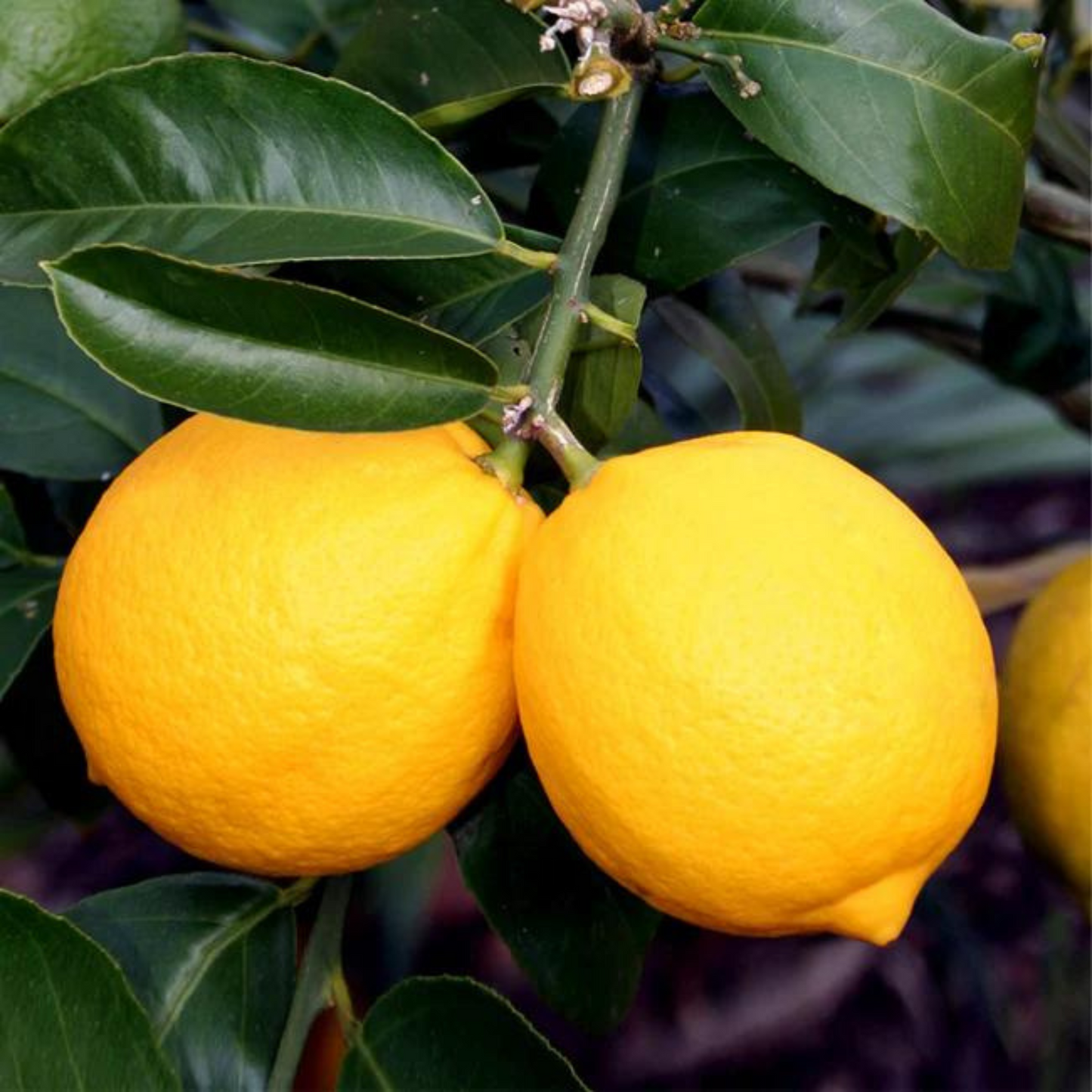
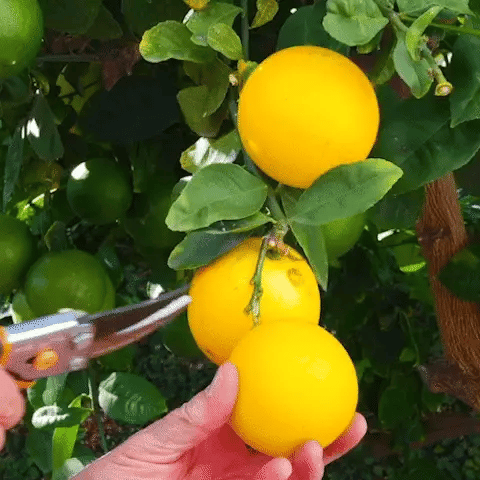
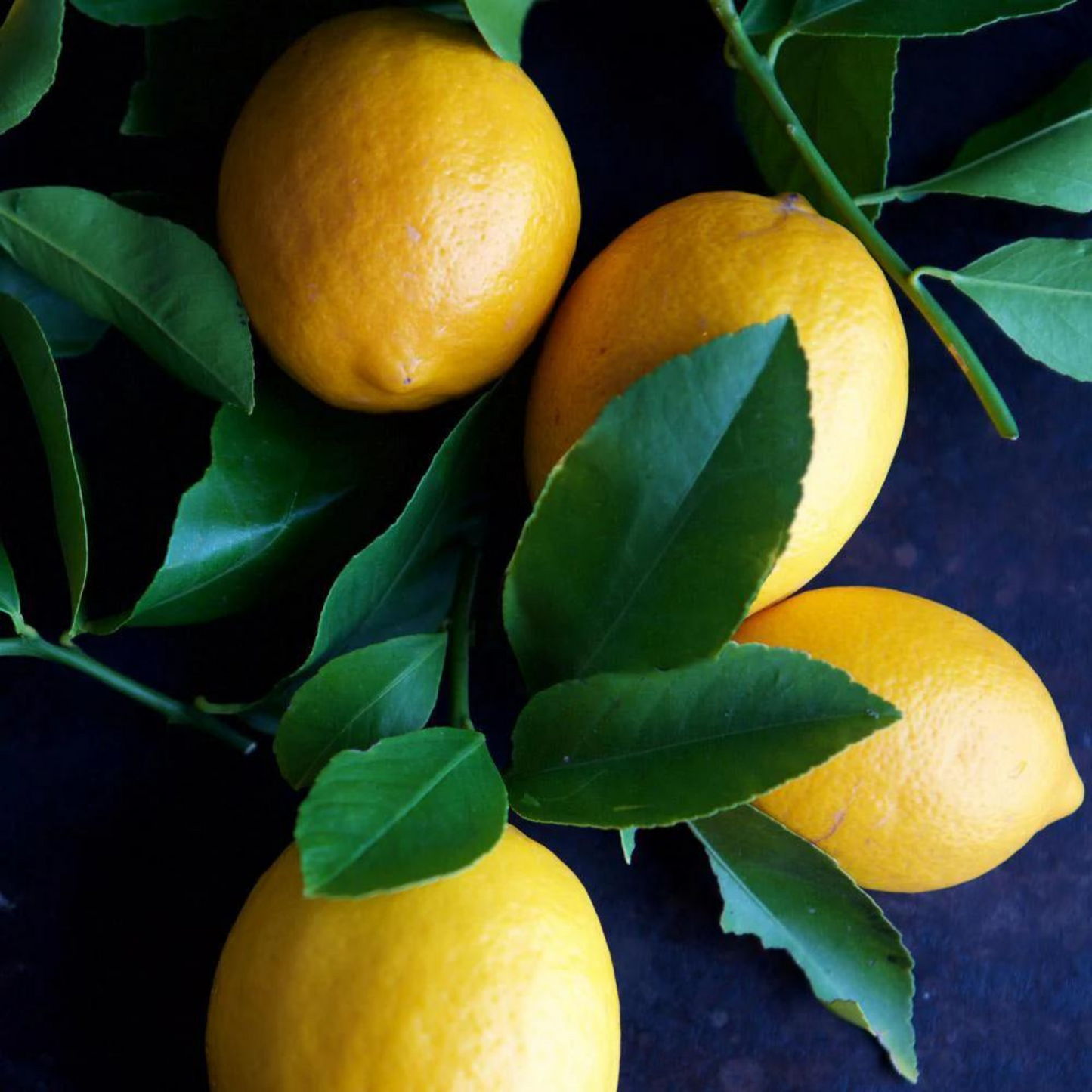
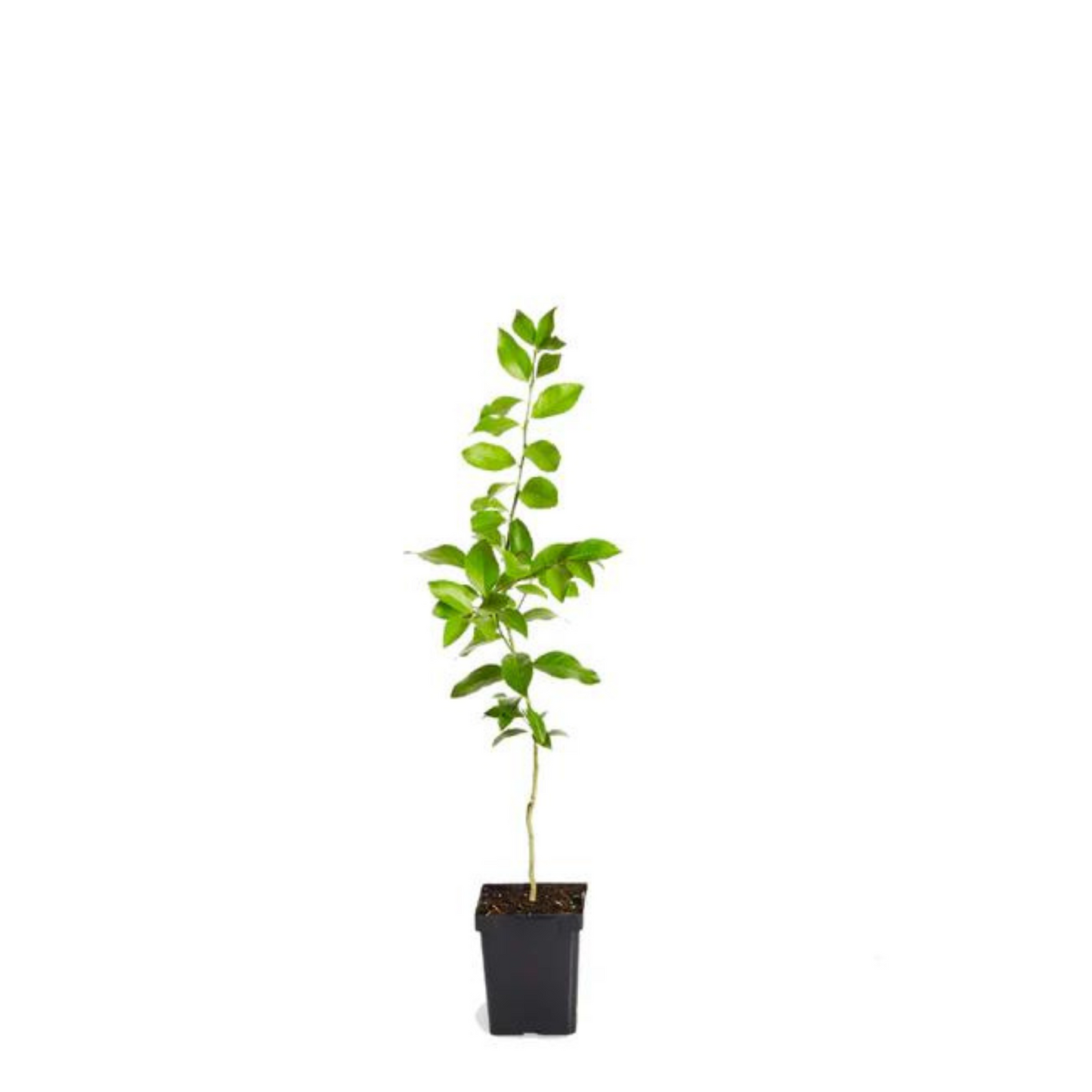
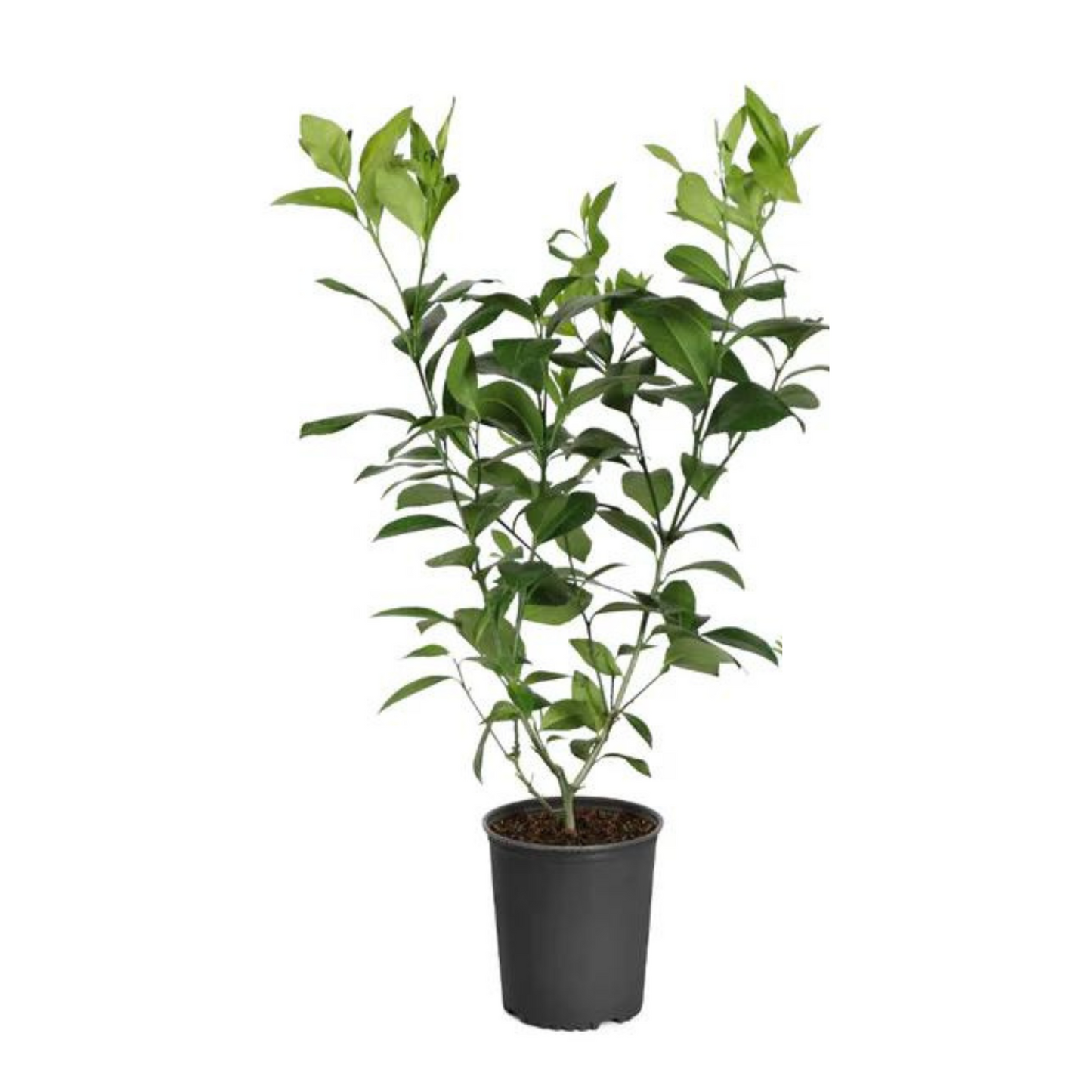
The graft is too small to be sold to customers. You have a controlled environment to grow. Please grow it a little bigger than two branches and 8 leaves so that there is a better chance for the survival of the plant. For exotic trees like Meyer, we don't mind paying over 2 or 3k if it is little bigger. I am struggling to keep the plant alive which is 4 months old after the graft.
I gave 5 stars bcoz the packing was very good. The plant is very small but in good condition only the top branch was dried which I took it off. Let's see how it goes, will update after a month.
Everything was perfect besides the basics , the plant was delivered planted in soil along with the plastic growbag, somehow stumbled upon it after transplanting and watering for the first time the plastic bag started showing. So had to remove the plastic bag and repot again. Such an aswm product and packaging but this neglegence can not be accepted . However the plant received was healthy .
Received very healthy plant, very happy with my purchase. Just let me know when to remove the grafting tape from the branch.

